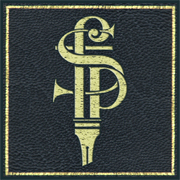There are two broad aspects to all religions. On the one hand there are the stories and texts that tell the story upon which the religion is based and which form the ‘holy writ’ of the original event or events. On the other are the works, redactions and thoughts, of the theologians and others who have studied and thought about these original works. And the reason these other works exist is because the high degree of fantasy, oral tradition and sometimes plain obscurity of the original fantasy stories need to be ‘interpreted’ and discussed for ‘modern’ generations of followers. Hence the rise of the traditionalists.
This is the point where human actions meet religions and ethics are born. It is a tragedy, but obvious in the extreme, why ethics has become bound up with religion but it is equally obvious that ethics is a human discussion we have with ourselves that has nothing to do with religion. It is absurd to think that killing is anything but objectionable, theft anything but divisive, intolerance anything but unacceptable; without any reference to a god’s prescriptive ordinances.
Religious ethics are in fact, human ethics filtered through a belief system. And it is dangerous nonsense for atheists to throw out the ethics with the religion. Without religion we still have to work with other people, work with nature and understand ourselves.
If ethical behaviour is not a description of our lives we are as much hypocrites as the religious.
